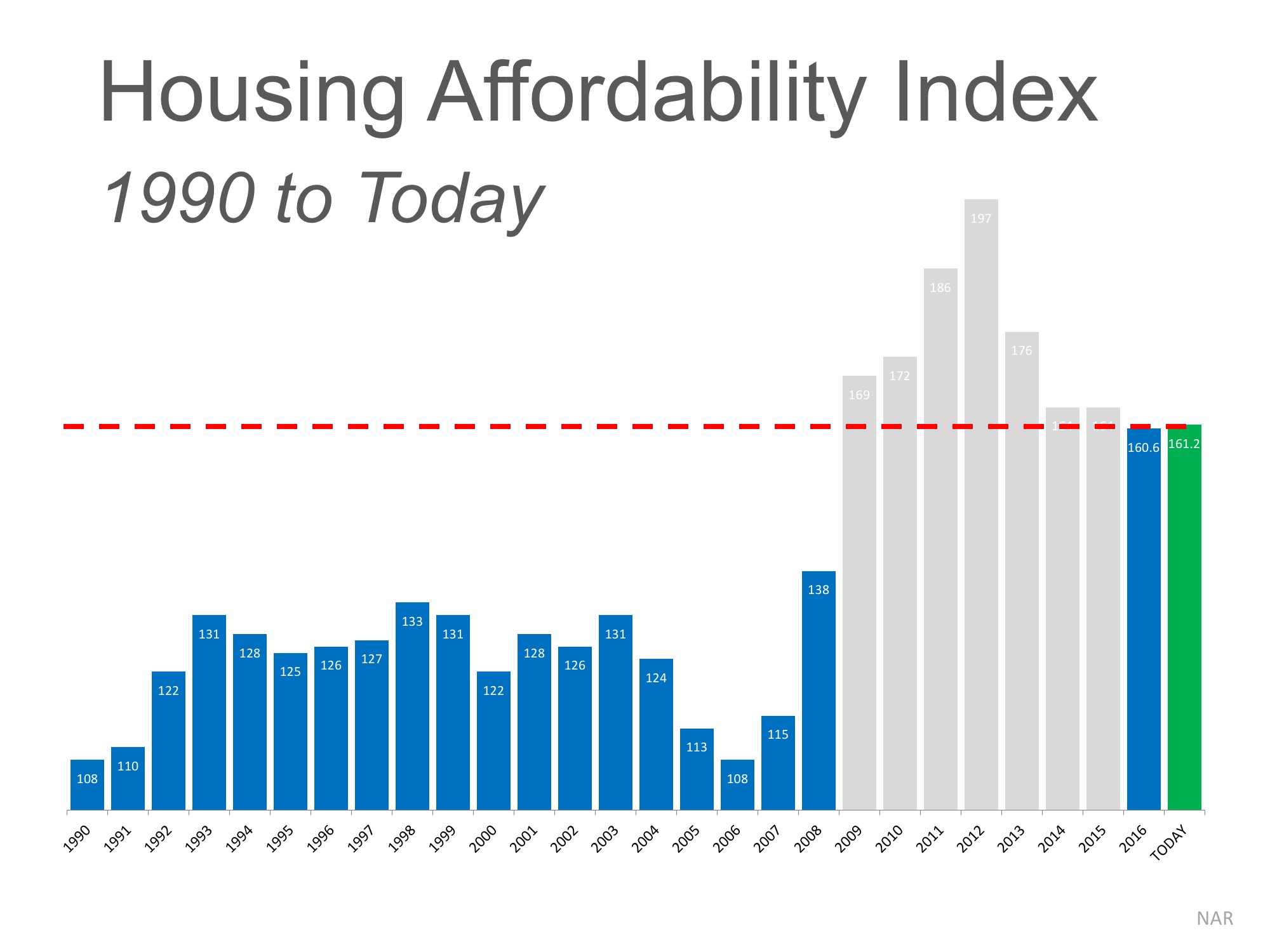The ‘REAL’ News about Housing Affordability
![20170406-Share-STM[1] Keeping Current Matters](https://brookhampton.com/wp-content/uploads/blog-post-images/20170406-Share-STM1.jpg)
Some industry experts are claiming that the housing market may be headed for a slowdown as we proceed through 2017, based on rising home prices and a potential jump in mortgage interest rates. One of the data points they use is the Housing Affordability Index, as reported by the National Association of Realtors (NAR).
Here is how NAR defines the index:
“The Housing Affordability Index measures whether or not a typical family earns enough income to qualify for a mortgage loan on a typical home at the national level based on the most recent price and income data.”
Basically, a value of 100 means a family earning the median income earns enough to qualify for a mortgage on a median-priced home, based on the price and mortgage interest rates at the time. Anything above 100 means the family has more than enough to qualify.
The higher the index, the easier it is to afford a home.
Why the concern?
The index has been declining over the last several years as home values increased. Some are concerned that too many buyers could be priced out of the market.
But, wait a minute…
Though the index skyrocketed from 2009 through 2013, we must realize that during that time, the housing crisis left the market with an overabundance of distressed properties (foreclosures and short sales). All prices dropped dramatically and distressed properties sold at major discounts. Then, mortgage rates fell like a rock.
The market is recovering, and values are coming back nicely. That has caused the index to fall.
However, let’s remove the crisis years (shaded in gray) and look at the current index as compared to the index from 1990 – 2008:
Though prices and rates appear to be increasing, we must realize that affordability is composed of three ingredients: home prices, interest rates, and income. And, incomes are finally rising.
ATTOM Data Solutions recently released their Q1 2017 U.S. Home Affordability Index. The report explained:
“Stronger wage growth is the silver lining in this report, outpacing home price growth in more than half of the markets for the first time since Q1 2012, when median home prices were still falling nationwide. If that pattern continues, it will help turn the tide in the eroding home affordability trend.”
Bottom Line
Compared to historic norms, it is still a great time to buy from an affordability standpoint.
Why Home Prices Keep Going Up
Even though higher mortgage rates has caused buyer demand to moderate, home prices are going back up is because there still aren’t enough homes for sale for all the people who want to buy them.
Are Higher Mortgage Rates Here To Stay?
Experts typically recommend focusing your search on the right home purchase — not the interest rate environment.
Key Skills You Need Your Listing Agent To Have
A listing agent, also known as a seller’s agent, helps market and sell your house while advocating for you every step of the way.
Are You a Homebuyer Worried About Climate Risks?
Homebuyers are interested in finding out if the house they want will be exposed to things like floods, extreme heat, and wildfires.
Home Prices Are Not Falling
Don’t fall for the negative headlines and become part of this statistic. Remember, data from a number of sources shows home prices aren’t falling anymore.
Unpacking the Long-Term Benefits of Homeownership
Higher mortgage rates, rising home prices, and ongoing affordability concerns may make you wonder if you should buy a home right now.
Why Your House Didn’t Sell
For insight on why your home didn’t sell, rely on a trusted real estate agent. A great agent will offer expert advice on relisting your house with effective strategies to get it sold.
The Return of Normal Seasonality for Home Price Appreciation
Don’t let the terminology confuse you or let any misleading headlines cause any unnecessary fear.
Beginning with Pre-Approval
Pre-approval gives you critical information about the homebuying process that’ll help you understand how much you may be able to borrow.
Your Home Equity Can Offset Affordability Challenges
Some homeowners are reluctant to sell and take on a higher mortgage rate on their next home, but what about home equity?










